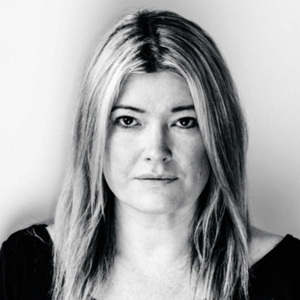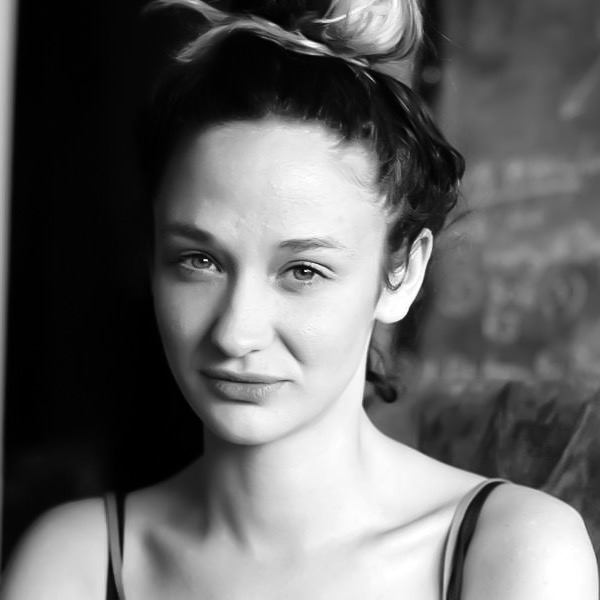
THE IMPORTANCE OF BEING EARNEST - PRODUCTION BIOS
In his role as Artistic Director, David is responsible for overseeing the programming, direction and day-to-day management for Proforca's creative projects and is one of our Founding Members.
For Proforça, credits include "If I Go" - May 2016, (Director / Executive Producer) "Saucy Jack & The Space Vixens" (Director / Executive Producer) and the Director of the Workshop production of "Feel" (2017)
David is also the writer and Director of a number of charity concerts and the Writer / Director of the Pantomimes "Dick Whittington" "Cinderella" and "Aladdin" for corporate performance.
David originally hails from Coventry in the West Midlands and has lived in London since 2004. (This doesn't make him a Brummie!) In the rare event he gets any spare time, he enjoys theatre, writing music, cult science fiction, and having travelled extensively in Europe, the US and to India - has racked up a fair few air miles in the last few years. One of his best experiences was driving a husky team at the North Pole! David is delighted to be directing this special version of "The Importance of Being Earnest" and would like to thanks Mrs Ireland, for proving that English Literature "A" Level was worthwhile after all.
Martina is one of Proforca's Founding members and acts in a production and advisory capacity for our productions, and also manages our Front of House processes.
For Proforça, credits include "If I Go" - May 2016 (Executive Producer), and Front of Manager / Producer for "Saucy Jack & The Space Vixens" (Nov 2016)
Martina is Norwegian & Italian, and speaks 5 languages (English, Norwegian, Italian, Swedish & French) and has lived all over the world including Oslo, Vienna, Rome, Moscow, Brussels, Tasmania, Santa Fe and now London! In her spare time, Martina enjoys travelling, live music and runs a successful Nordic inspired catering company www.nordish.co.uk
Originally from Wales, Catrin trained at The Academy Drama School London and has attended The Central School of Speech & Drama. Previous roles include Carol in Shakers, Justine Ross in Harper Regan, Pogo in Pond Life and has toured as Jack in a musical version of Jack and The Beanstalk.
Catrin is an experienced voice over artist with a catalogue of work including continuity announcing, corporate and radio work as well as narration and voicing audio books. She has also had lead roles in various short films and corporate works as well as appearing on a number of reality and game shows including appearances on "Supermarket Sweep", "Dinner Date" and the first episodes of "Cashtrapped" for ITV (2016)
Cat is a founder member of Proforca Theatre Company and originated the role of "Becky" in "If I Go" (May 2016) and the role of "Karen" in "Feel" (2017). Other roles include "Lady Bracknell" in the "Importance Of Being Earnest" (Sept 2017) Cat was also Producer and Costume Designer for "Saucy Jack & The Space Vixens" (May 2016) and Producer for "The Ballad of Reading Gaol" (November 2017).
Catrin’s dream role would be behind the bar in Coronation Street or in anything directed by Shane Meadows. (Even if it was an advert for toilet cleaner!)
Twitter : @catrinkeeler
Harriet Lambert - Founding Member
Harriet is a performance artist, dancer and actress based in London. Originally training in Contemporary Dance, Harriet later completed a MA in Performance and Visual Practices at the University of Brighton. Her work has been performed throughout London, Brighton and Munich, most recently at Brighton Fringe 2015, with her own one woman show ‘CETBC’.
For Proforca Theatre Company, Harriet originated the role of "Camilla" in "If I Go" - May 2016, "Naomi" in "Feel" (Spring 2017), Gwendoline Fairfax in "The Importance of Being Earnest" (Sept 2017). Production Roles include Choreographer / Musical Director for "Saucy Jack & The Space Vixens" (Nov 2016) and "The Ballad of Reading Gaol" (Nov 2017)
When she’s not writing/performing her own work, or performing in others’ work, she is also currently training part time as an Osteopath.
Twitter: @ProforcaHarriet
Erin moved to London to pursue a career in acting and to begin studying drama at Queen Mary University of London. Roles include the short films 'Unforgettable', 'Performance' and ‘Extra Time’ (2015) the latter of which has recently become an award winning film.
Her passion for music, singing and dancing has led her to explore every part of the theatre. In 2015, she was the Assistant Musical Director for ‘The King and I’ (The Riverhead Theatre) and ‘Oliver’ (The Embassy Theatre) and she assisted with the singing coaching and acted in productions of ‘Fame’ and ‘Footloose’ (2011 & 2012 respectively) at The Regent Theatre, Stoke-on-Trent.
For Proforca Theatre Company, Erin was Musical Director / Assistant Director for "Saucy Jack & The Space Vixens" (Nov 2016) and Producer for the workshop productions of "Feel" (2017) and Producer for "The Ballad of Reading Gaol" (Nov 2017)






Oscar Fingal O'Flahertie Wills Wilde (16 October 1854 – 30 November 1900) was an Irish playwright, novelist, essayist and poet. After writing in different forms throughout the 1880s, he became one of London's most popular playwrights in the early 1890s. He is remembered for his epigrams, his novel The Picture of Dorian Gray, his plays, as well as the circumstances of his imprisonment and early death.
Wilde's parents were successful Anglo-Irish, Dublin intellectuals. Their son became fluent in French and German early in life. At university, Wilde read Greats; he proved himself to be an outstanding classicist, first at Dublin, then at Oxford. He became known for his involvement in the rising philosophy of aestheticism, led by two of his tutors, Walter Pater and John Ruskin. After university, Wilde moved to London into fashionable cultural and social circles.
As a spokesman for aestheticism, he tried his hand at various literary activities: he published a book of poems, lectured in the United States and Canada on the new "English Renaissance in Art", and then returned to London where he worked prolifically as a journalist. Known for his biting wit, flamboyant dress and glittering conversation, Wilde became one of the best-known personalities of his day.
At the turn of the 1890s, he refined his ideas about the supremacy of art in a series of dialogues and essays, and incorporated themes of decadence, duplicity, and beauty into his only novel, The Picture of Dorian Gray (1890). The opportunity to construct aesthetic details precisely, and combine them with larger social themes, drew Wilde to write drama. He wrote Salome (1891) in French in Paris but it was refused a licence for England due to the absolute prohibition of Biblical subjects on the English stage. Unperturbed, Wilde produced four society comedies in the early 1890s, which made him one of the most successful playwrights of late Victorian London.
At the height of his fame and success, while The Importance of Being Earnest (1895) was still being performed in London, Wilde had the Marquess of Queensberry prosecuted for criminal libel. The Marquess was the father of Wilde's lover, Lord Alfred Douglas. The libel trial unearthed evidence that caused Wilde to drop his charges and led to his own arrest and trial for gross indecency with men. After two more trials he was convicted and imprisoned for two years' hard labour, the maximum penalty.
In 1897, in prison, he wrote De Profundis, which was published in 1905, a long letter which discusses his spiritual journey through his trials, forming a dark counterpoint to his earlier philosophy of pleasure. Upon his release he left immediately for France, never to return to Ireland or Britain. There he wrote his last work, The Ballad of Reading Gaol (1898), a long poem commemorating the harsh rhythms of prison life. He died destitute in Paris at the age of 46.
(Courtesy Wikipedia)